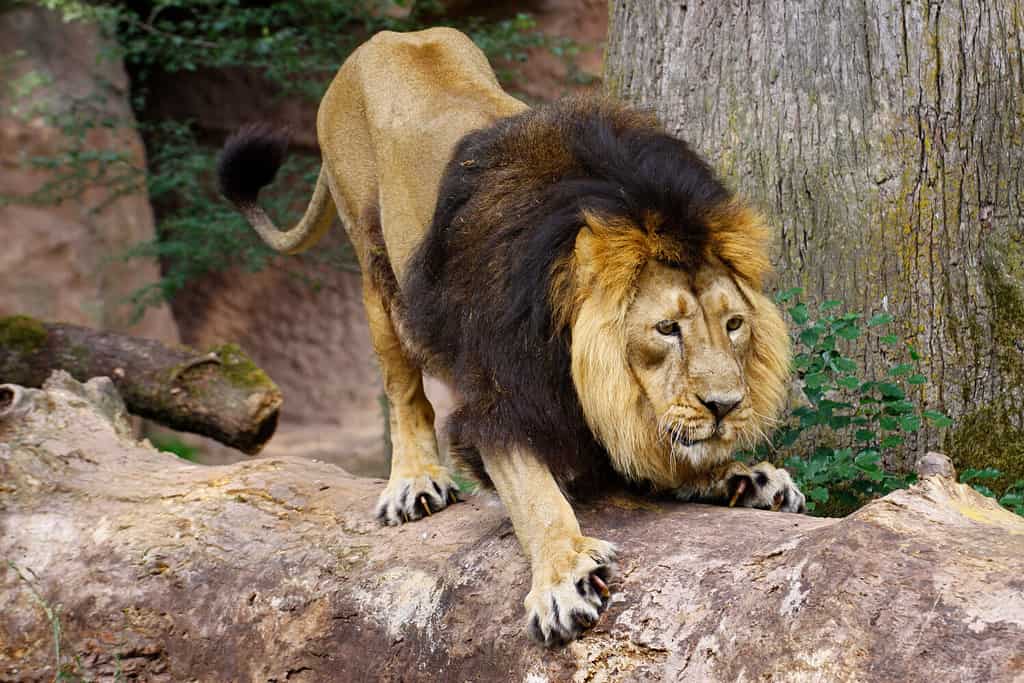The quaternary consumer is an organism on the fifth trophic level in a food chain. Also known as keystone species or apex predators, quaternary consumers eat tertiary consumers, which are on the level below them.
Summary

Lions are quaternary consumers, meaning they are at the top of the food chain
©R. Maximiliane/Shutterstock.com
Quaternary consumers are typically carnivorous animals at the top of the food chain. These organisms are considered predators, meaning they prey on animals smaller and weaker than them. These apex predators have no natural predators of their own, and they generally don’t have a difficult time finding food.
Examples of Quaternary Consumers
Some examples of quaternary consumers include humans, lions, polar bears, hawks, wolves, tigers, and saltwater crocodiles. These animals are the most feared and avoided in their environments. Some of them even play different roles in the food chain, such as the brown bear, which eats both fish and berries. There can also be multiple quaternary consumers within one habitat. For instance, great white sharks and orcas coexist. While the two won’t typically hunt each other, except under extreme circumstances, they can run into the problem of food competition and decreased resources.
Quarternary consumers eat tertiary consumers, which differ based on the animal and the habitat. Hawks, for example, eat snakes and smaller birds, which are considered tertiary consumers. While snakes eat many animals smaller than themselves, they are not exempt from being preyed upon by bigger, stronger, faster species.
What Eats a Quaternary Consumer?
Because a quaternary consumer is an apex predator at the top of the food chain, they have no natural predators. These animals don’t typically fall victim to other animals hunting and eating them. However, they can be killed due to competition with other apex predators. For instance, different hawk species may duel over food and territory. There are also occurrences that happen outside of the norm, like when a crocodile kills and eats a lion. While things like this don’t happen often, they do occur.




